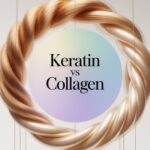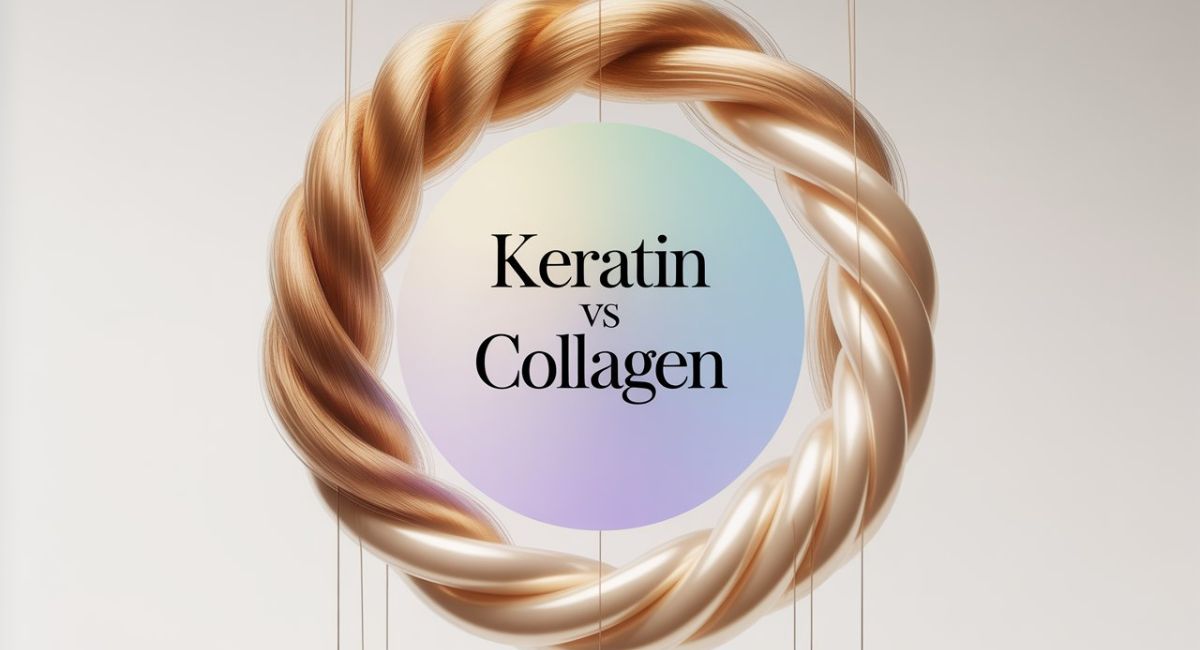🧬 Introduction
When it comes to beauty, skincare, and haircare, two powerhouse proteins often come up keratin and collagen. Both are essential for maintaining healthy skin, strong nails, and vibrant hair. But many people confuse the two or don’t fully understand how they differ.
In this article, we’ll break down keratin vs collagen what they are, how they work, their benefits, and how to decide which one is right for your health and beauty routine.
🧪 What is Keratin?
Keratin is a tough, fibrous protein naturally found in our hair, nails, and the outer layer of skin. It acts as a protective barrier and gives structure to the body’s external features.
Key Benefits:
- Strengthens hair and prevents breakage
- Protects skin from environmental damage
- Keeps nails firm and resistant to peeling
- Improves the texture and smoothness of hair
Where You Find It:
Keratin is commonly used in hair treatments, especially smoothing or straightening therapies. You’ll also find it in shampoos, conditioners, and hair serums.
🧬 What is Collagen?
Collagen is the most abundant protein in the human body. It’s a major building block of skin, bones, muscles, tendons, and ligaments. As we age, collagen production naturally decreases, leading to wrinkles, joint pain, and sagging skin.
Key Benefits:
- Keeps skin firm, hydrated, and youthful
- Strengthens bones and joints
- Supports muscle mass
- Reduces fine lines and wrinkles
Where You Find It:
Collagen is often included in skincare products, dietary supplements, and anti-aging treatments. It can also be consumed through collagen powders, broths, or capsules.
⚖️ Keratin vs Collagen: Key Differences
| Feature | Keratin | Collagen |
| Primary Role | Protects and strengthens hair, nails, and skin | Supports skin elasticity, joints, and tissues |
| Found In | Hair treatments, shampoos | Skincare products, supplements |
| Natural Sources | Eggs, meat, fish, onions | Bone broth, chicken skin, fish skin |
| Main Benefit | Smoother, stronger hair | Firmer, younger-looking skin |
| Anti-aging Effect | Limited | Strong |
💡 When Should You Use Keratin?
Consider keratin-based products if:
- Your hair is frizzy, brittle, or damaged
- You frequently use heat tools like straighteners or blow dryers
- You want smooth, shiny, and manageable hair
💡 When Should You Use Collagen?
Choose collagen supplements or creams if:
- You notice fine lines or sagging skin
- You want to improve joint health or flexibility
- You’re looking for overall anti-aging support
🧠 Can You Use Both Together?
Yes! In fact, many beauty experts recommend using both. While keratin works on the outside, giving you shinier hair and stronger nails, collagen works from the inside out, helping improve your skin’s elasticity and keeping your joints healthy.
Combining both can lead to stronger, healthier hair, firmer skin, and a more youthful appearance.
🔗 Learn more about anti-aging solutions at 56news.org
🌐 Read more about collagen benefits on Healthline
✅ Conclusion
In the keratin vs collagen debate, there’s no clear winner it all depends on your individual goals. If you want smoother hair and stronger nails, go for keratin. If you’re targeting skin health, joint support, and overall aging, collagen is the better choice.
For best results, consider a combined approach that includes both keratin-rich treatments and collagen supplements in your routine.
❓ FAQ: Keratin vs Collagen
Q1: Can I take collagen and use keratin treatments at the same time?
Yes, they work differently and complement each other well.
Q2: Is collagen better than keratin for skin?
Yes, collagen plays a larger role in maintaining skin elasticity and reducing wrinkles.
Q3: Are there side effects to using keratin?
Some salon treatments may include formaldehyde, so it’s best to choose formaldehyde-free keratin products.
Q4: How long do keratin treatments last?
Typically 2–3 months depending on hair care routine.
Q5: What’s the best form of collagen?
Hydrolyzed collagen (collagen peptides) is easiest to absorb when taken as a supplement.










